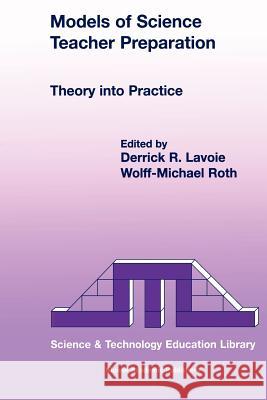Models of Science Teacher Preparation: Theory into Practice » książka
Models of Science Teacher Preparation: Theory into Practice
ISBN-13: 9789048157556 / Angielski / Miękka / 2010 / 227 str.
Models of Science Teacher Preparation: Theory into Practice
ISBN-13: 9789048157556 / Angielski / Miękka / 2010 / 227 str.
(netto: 384,26 VAT: 5%)
Najniższa cena z 30 dni: 385,52
ok. 16-18 dni roboczych.
Darmowa dostawa!
1 Wolff Michael Roth & Derrick R. Lavoie 1 2 University of Victoria, Virtual Institute for Learning Resources The current reform in science education requires a substantive change in how science is taught. Implicit in this reform is an equally substantive change in professional devel- ment practices at all levels. (NRC, 1996, p. 56) In a continuously changing society, it is not surprising that education also undergoes continuous change. Science education is no exception, and perhaps changes are more rapid given the daily construction of new scientific knowledge. In such a c- mate of continuous change, the preparation of science teachers has to follow suit in order to be appropriate to the reforms that national organizations encourage. H- ever, whereas science teaching reform movements spawned recommendations of what teachers should know and be able to do in order for their students to concep- alize and process science (NSTA, 1997), they provide little guidance in terms of - the-classroom concrete implementation. Thus, while national science education organizations continue to refine their positions about teacher education, there is no mechanism for translating these positions and statements into science education courses that can improve the preparation and quality of p- service science teachers at both the elementary and secondary levels. (Yager & Penick, 1990. p. 670) It is therefore not surprising that there are voices that describe teacher prepa- tion as unsuccessful and as unresponsive to reform efforts (Schnur & Golby, 1995)."











